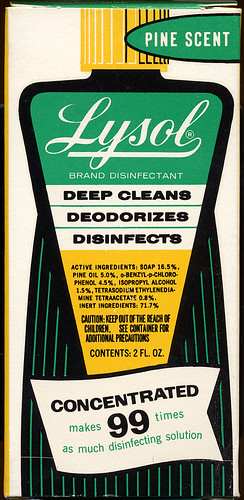
Note from Beth: Last June at the New York City book party for the Networked Nonprofit, Stephanie Strom, New York Times, moderated a discussion on the themes in the book. Vince Stehle asked a great question about how nonprofits might use some of the ideas in the book to engage their networks around Net Neutrality and other public issues. Vince wrote a guest post about Net Neutrality and Networked Nonprofits last month.
This month he explores why and how networked nonprofits should rally for more transparency in campaign funding based on a more detailed article over at the Chronicle of Philanthropy. In our book, The Networked Nonprofit, we highlight the work of the Sunlight Foundation and its executive director, Ellen Miller. We’d like to thank Ellen and the Sunlight Foundation for giving copies of the book to nonprofit and foundation leaders at last week’s Independent Sector Conference.
Sunlight is the best disinfectant. So said Supreme Court Justice Louis Brandeis over a hundred years ago, making the point that public disclosure is the best way to prevent corruption in business and government affairs.
It’s never been more true than it is today.
In recent years, there have been great strides in government transparency, due in large part to the activities of the Sunlight Foundation to pry open the hidden vaults of government data. The Sunlight Foundation has made the arcane inner workings of government data much easier to grasp for reporters and the public alike by creating easy-to-use technology tools and clever marketing campaigns.
The Sunlight Foundation provides power tools for open government, with online efforts such as Influence Explorer and Poligraft, which make it easy for anyone to track financial contributions and political influence, and Clearspending, a scorecard that tracks federal-government spending.
Unfortunately, the current Supreme Court does not seem to have the wisdom of Justice Brandeis. Its ruling on the Citizens United campaign finance case earlier this year has overturned a century of jurisprudence on the appropriate limits of corporate influence in elections. Under their decision, corporations are now permitted to make unlimited and undisclosed contributions to independent organizations calling for the election or defeat of particular candidates. With the Citizens United decision, the current court has thrown the sunlight of public disclosure into a total eclipse.
Suddenly, hundreds of millions of dollars of shady cash is flooding into this year’s critical mid-term elections. And candidates and citizens suffering under a barrage of harsh television ads don’t know what hit them.
Particularly disturbing is the bad odor that this new political force will attach to nonprofit advocacy. For those of us who have long encouraged nonprofits to advocate for policy change and provide education on nonpartisan electoral issues, the ruling threatens to undermine the credibility and legitimacy of efforts that truly reflect the First Amendment rights of civic associations.
What can the networked nonprofit do to counteract the impact of secret money in elections?
The first thing any charity can do is to exercise its own rights to engage in nonpartisan electoral education activities. Groups like the Nonprofit Voter Engagement Network offer guidance on what is legal and effective in seeking to promote voting among a nonprofit organization’s many constituents: employees, donors, volunteers, clients, members.
In addition, nonprofits can take the advice of the Sunlight Foundation and urge members of Congress to require disclosure of third-party spending to prevent a repeat of this year’s secret money bazaar in the 2012 presidential election.
The Citizens United decision, allowing obscene amounts of cash from secret contributors to be unleashed on the electoral system, is undermining the credibility of American democracy.
How do I know it’s obscene? As Supreme Court Justice Potter Stewart wrote in a 1964 Supreme Court decision about pornography, legal definitions of obscenity may not be precise, “but I know it when I see it.”
Resource: The Media Consortium – Campaign Cash – Who Is Funding Your Elections

Vince Stehle is a philanthropic consultant and a member of the Board of Directors of Grantmakers in Film and Electronic Media. This post is adapted from a column, “Nonprofits Should Rally Behind Efforts to Shed Light on Secret Donor” over at the Chronicle of Philanthropy, where Vince is a regular columnist.

Leave a Reply